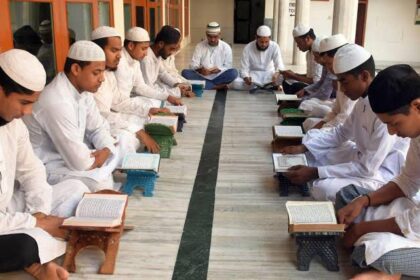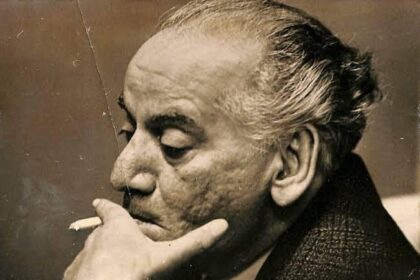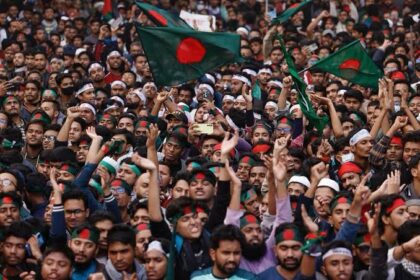In the complex tapestry of Pakistan’s history, the name of Faiz stands out. Two Faiz echo with prominence in our history, Faiz Ahmed Faiz and Faiz Hameed but their legacies are shaped by dramatically different contributions and controversies. While one was a poet whose activism was deeply intertwined with his revolutionary ideals, the other is former spy master whose current court-martial brings into focus issues of political manoeuvring and accountability.
Faiz Ahmed Faiz, a renowned poet and the most respectable personality, was deeply influenced by communist ideologies and had a profound commitment to social justice and revolutionary change. His poetry, which often highlighted themes of struggle and resistance, reflected his broader political beliefs and activism. Faiz Ahmed Faiz was accused of conspiring to overthrow the government in a significant case of Pakistan’s history known as Rawalpindi ‘conspiracy’ case. The charges were rooted in the broader context of the Cold War politics and the tense socio-political climate of the time.
The ‘conspiracy’ allegedly involved a plan to ‘incite a revolution’ against the then-government of Pakistan, which was viewed as financially corrupt and authoritarian by its critics. The case led to Faiz Ahmed Faiz’s imprisonment and subsequent trial, which was marked by political repression and a crackdown on dissent. Despite the charges against him, Faiz Ahmed Faiz’s enduring legacy is that of a poet who used his art to challenge the status quo and advocate for the underprivileged. His imprisonment only amplified his stature as a symbol of resistance and intellectual integrity.
Legacies of Faiz Ahmed Faiz and Faiz Hameed are shaped by dramatically different contributions and controversies
In stark contrast to Faiz Ahmed Faiz’s ideological battles, the other Faiz – Faiz Hameed, a former intelligence chief, is currently embroiled in a court-martial that underscores the political and power struggles. The charges against Faiz Hameed are reflective of broader issues related to the misuse of power and political manoeuvring. Unlike Faiz Ahmed Faiz, whose struggles were driven by ideological commitment, this Faiz’s controversies appear to be tied more directly to power dynamics and personal ambitions within the realm of national security.
This high-profile case has the potential to impact public trust in the military, highlighting the need for transparency and integrity in institutions that hold significant power. The outcome of the court-martial could either reinforce or undermine the public’s confidence in the military’s commitment to ethical conduct and accountability. The juxtaposition of Faiz Ahmed Faiz and Faiz Hameed presents a fascinating contrast between ideals and power.
Faiz Ahmed Faiz’s life was driven by a quest for social justice and revolutionary change, reflecting his deep-seated beliefs in equality and resistance against oppression. His contributions, while controversial in their own time, have been celebrated for their dedication to principles of human dignity and resistance. On the other hand, Faiz Hameed’s actions, currently under scrutiny, reflect a different kind of struggle one that revolves around political power.
In conclusion, the two Faiz who were charged for conspiracy, Faiz Ahmed Faiz will be remembered in the history as a staunch voice against undemocratic forces and oppression, who stood firmly for the rights of the people. In contrast, Faiz Hameed’s tenure and current court-martial may be remembered for contributing to political instability and for the controversial role he played during the Faizabad sit-in, which some critics argue furthered a divisive brand of politics. While Faiz Ahmed Faiz’s life was dedicated to uplifting people through his art and activism, Faiz Hameed’s story reflects the complex and often troubling dynamics of power and politics in Pakistan.











